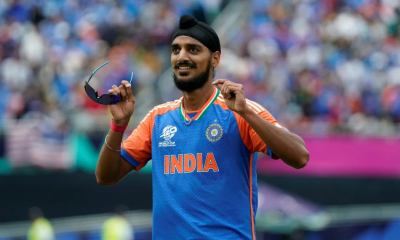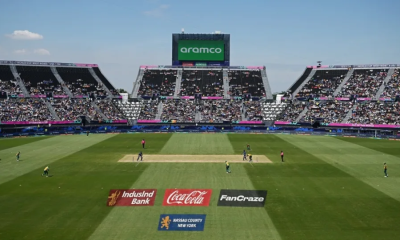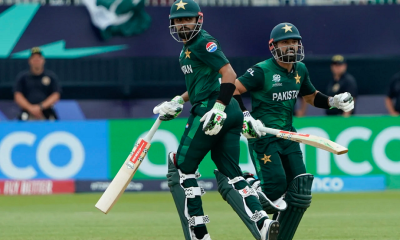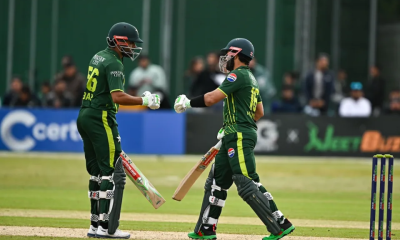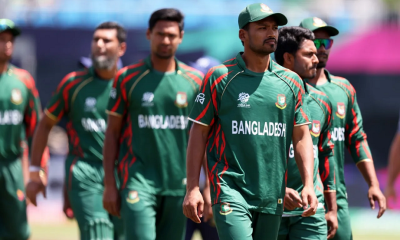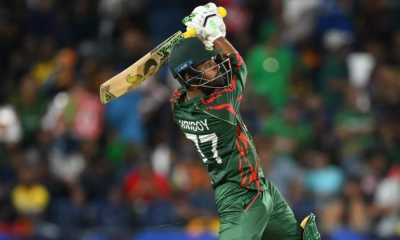Foreign News
Have Trump prosecutors made their case at hush-money trial?
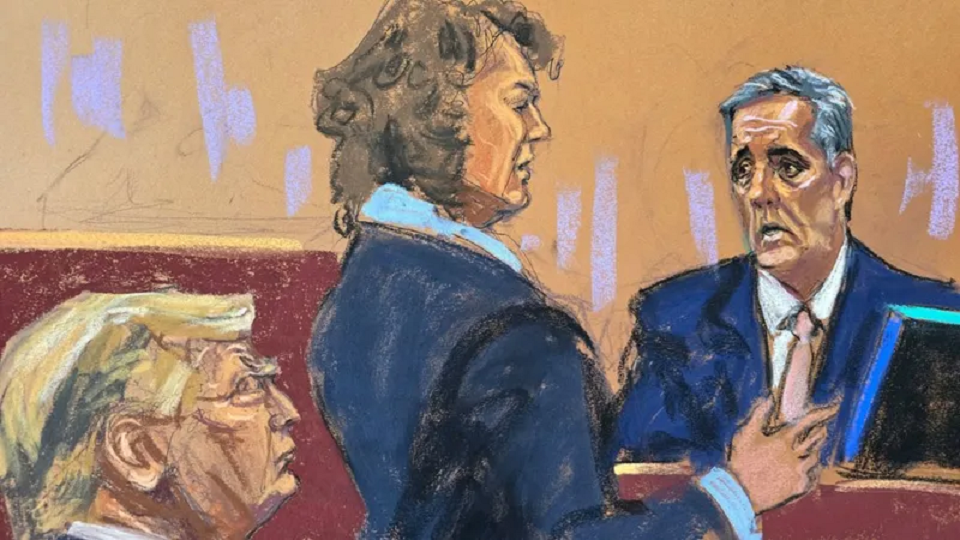
For nearly four weeks, Donald Trump has sat quietly in a New York courtroom while state prosecutors laid out the first-ever criminal case against a former US president.
Lawyers from the Manhattan District Attorney’s Office have called on a cast of blockbuster witnesses and produced dozens of surreptitiously recorded conversations and documents to help corroborate their case.
They allege Mr Trump directed a hush-money payment to an adult-film star in 2016 to avoid a sex scandal he feared would derail his presidential campaign – and then authorised an illegal reimbursement scheme to cover it up. Mr Trump denies 34 counts of falsifying business records.
The prosecution’s final witness, Michael Cohen, will face further cross-examination on Monday before Trump’s lawyers get an opportunity to present his defence.
Legal experts say the prosecution has done an efficient job. But even with solid evidence and testimony, they acknowledge that a conviction in the complex felony case is far from guaranteed.
“The pieces are all there. But is it there beyond a reasonable doubt?” said former Brooklyn prosecutor Julie Rendelman. “I don’t know.”
“It only takes one juror,” she added.
Laying out the story
Though Mr Trump’s case centres on a reimbursement he made to Cohen, his former fixer, prosecutors spent the first weeks of the trial walking the court through what led up to the $130,000 (£102,000) hush-money payment Cohen made to adult-film star Stormy Daniels.
They started with David Pecker, the former publisher of the National Enquirer.
He described a series of meetings in Trump Tower where he, Cohen and Mr Trump hatched a plan to suppress negative stories about Mr Trump – including alleged sexual encounters – as he ran for president.
His testimony proved influential, said former Manhattan prosecutor Lance Fletcher. “He doesn’t have a reputation that’s been blown apart by this. And he came into it really seeming to be Trump’s friend,” Mr Fletcher said. “So I think he comes off as almost an impartial witness.”
From there, prosecutors called a host of others, including former Trump aide Hope Hicks and Daniels’ former attorney Keith Davidson, to corroborate the story.
“They sort of connected a fascinating novel … about how all of these characters interacted,” said Columbia Law School professor John Coffee. “And that was wise.”
They also interspersed evidence such as meeting logs, recordings and receipts of hush-money payments made to a Trump Tower doorman and Playboy model Karen McDougal to bolster witnesses’ stories.
Star witnesses air secrets
Prosecutors used weeks of storytelling and evidence to build up to the most highly anticipated witnesses, including Ms Daniels.
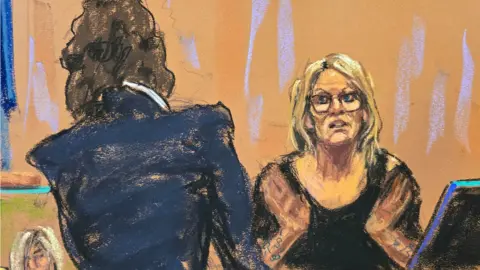
Mr Trump’s attorneys worked hard to limit Ms Daniels’ testimony.
While prosecutors pledged to tread lightly when quizzing her about the alleged sexual encounter at a hotel suite in Nevada in 2006, she still proved at times an uncontrollable witness, Judge Juan Merchan told the court. Mr Trump has denied having sex with her.
Her explicit testimony led to several unsuccessful mistrial motions from Mr Trump’s legal team and may have opened the door for an appeal, some legal experts said.
But others said that context helped prosecutors show why Mr Trump would be desperate to pay for her silence in order to protect his campaign.
“She got into some salacious details, which I thought went too far,” said Ms Rendelman. “But at the same time, the argument for the prosecution is the more salacious it is, the more Trump would want it to be shut down.”
Ultimately, Ms Daniels could only testify to what led up to the hush-money payment.
For the behind-the-scenes reimbursement, they had to rely on a problematic witness: a convicted felon who recently has made a living off attacking Mr Trump.
A calm and collected Cohen takes the stand
Members of the public held their breath earlier this week as Mr Trump’s former fixer-turned foe, Cohen, was called to the stand. Many anticipated the same character who authored fiery social media posts attacking Mr Trump, for whom he once pledged to take a bullet. But the man speaking in a blue suit and tie took them by surprise. Cohen appeared composed as he detailed his decades with Mr Trump.
“He is measured. He is reflective,” said Diane Kiesel, a former New York Supreme Court Justice and Manhattan prosecutor. “He has not let any bias or animus for Mr Trump show through.”
Cohen told the court of his initial admiration, working as Mr Trump’s personal attorney for 10 years. He acknowledged the lows as well, including lying on Mr Trump’s behalf, leading to regrets.
His composure boosted the prosecutors’ case, and his testimony was bolstered by a weak cross-examination from Mr Trump’s legal team on day one, experts said.
Mr Trump’s attorney, Todd Blanche, appeared disorganised at first, stumbling sometimes in his questioning, experts told the BBC.
But he appeared to make strides on the second day, Thursday, casting doubt on details of Cohen’s testimony, including an October 2016 phone call Cohen made to Mr Trump’s bodyguard in which he claimed to have to talked to Mr Trump about details of the hush-money payment.
It was a reminder of what experts said was one of prosecutors’ largest problems: Cohen’s credibility. The defence hammered home the point that Cohen is a convicted criminal, who spent time in prison after being convicted on several charges including lying to Congress.
Cohen was able to testify to a key part of prosecutors’ case – Mr Trump’s direct knowledge of the hush-money payment reimbursement scheme.
Cohen said former Trump Chief Financial Officer Allen Weisselberg – currently serving a perjury sentence at Rikers Island prison – decided to classify reimbursements from Mr Trump’s account as legal expenses. Cohen testified that he heard Weisselberg get the OK from Mr Trump himself.
As Cohen spoke, prosecutors also displayed the dozens of cheques, ledgers and invoices at the heart of the 34-count indictment.
But Cohen’s story may not sway all jurors.
“You are relying on a witness who in many respects … comes with a larger load of baggage than others,” Ms Rendelman said. “It makes it a bit more difficult to prove the case beyond a reasonable doubt.”
Connecting the dots
Other challenges remain for the prosecution.
In a relatively novel approach, the Manhattan District Attorney’s Office elevated falsifying business records charges to a felony by claiming Mr Trump did so with the goal of concealing another crime.
To prove their case, prosecutors must show intent – that Mr Trump illegally classified records for the purpose of aiding his campaign. Several witnesses seemed to corroborate this.
“He wasn’t thinking at all about [his wife] Melania,” Cohen told the court. “This was all about the campaign.”
But prosecutors must make this connection clear to the jury.
“Essentially they have to connect these payments to a motive that links them to a campaign,” said Ms Kiesel. “This requires a summation of a lifetime, because you really have to connect these dots.”
Mr Fletcher said prosecutors succeeded in doing so, with witnesses arguing the hush-money payment and reimbursement was not made to protect Mr Trump’s family.
“This was all about the election,” Mr Fletcher said. “If I was going to bet, I would bet on a conviction. But I don’t think it’s a slam dunk.”
In the end, the verdict could come down to jury selection, experts said.
The 12 members and six alternates were picked from hundreds who expressed a range of political views and familiarity with Mr Trump and this case.
Jury members are often unpredictable, Ms Kiesel said. “It only takes one person to decide that the people have not met their burden,” she said. “The people have 12 jurors to convince.”
(BBC)
Foreign News
Deadly attack on kindergarten reported in Sudan

A drone attack on the town of Kalogi, in Sudan’s South Kordofan region, is said to have hit a kindergarten and killed at least 50 people, including 33 children.
The Rapid Support Forces (RSF), the paramilitary group battling the army in Sudan’s civil war, was accused of Thursday’s attack by a medical organisation, the Sudan Doctors’ Network, and the army.
There was no immediate comment from the RSF.
The RSF in turn accused the army of hitting a market on Friday in a drone attack in the Darfur region, on a fuel depot at the Adre border crossing with Chad.
Sudan has been ravaged by war since April 2023 when a power struggle broke out between the RSF and the army, who were formerly allies.
The reports could not be verified independently.
According to the army-aligned foreign ministry, the kindergarten was struck twice with missiles from drones.
Civilians and medics who rushed to the school were also attacked, it added.
Responding to reports of the attack in Kalogi, a spokesman for the UN children’s agency Unicef said: “Killing children in their school is a horrific violation of children’s rights.”
“Children should never pay the price of conflict,” Sheldon Yett added.
The agency, he said, urged “all parties to stop these attacks immediately and allow safe, unhindered access for humanitarian assistance to reach those in desperate need”.
The RSF accused the army of attacking the Adre crossing because it was used for the “delivery of aid and commercial supplies”.
According to the Sudan War Monitor, a group of researchers tracking the conflict, the attack caused civilian casualties and significant damage to a market.
The military did not immediately comment on the reports from Darfur.
Wedged between Sudan’s capital Khartoum and Darfur, the region made up of North Kordofan, South Kordofan and West Kordofan has been a frontline in the civil war.
The battle for the Kordofans – which have a population of almost eight million – has intensified as the army pushes towards Darfur.
[BBC]
Foreign News
Deadly border fighting breaks out between Pakistan and Afghanistan
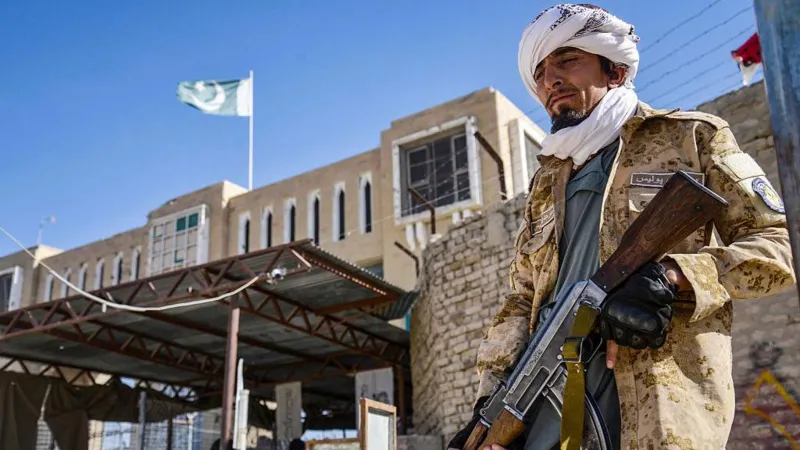
Border clashes have erupted again between Pakistan and Afghanistan’s Taliban forces, with each sides accusing the other of breaking a fragile ceasefire.
Residents fled the Afghan city of Spin Boldak overnight, which lies along the 1,600-mile (2,600 km) border between the two countries.
A medical worker in the nearby city of Kandahar told BBC Pashto that four bodies had been brought to a local hospital. Four other people were wounded. Three were reportedly wounded in Pakistan.
There has been sporadic fighting between the two countries in recent months, while Afghanistan’s Taliban government has also accused Pakistan of carrying out air strikes inside the country.
Both sides have confirmed they exchanged fire overnight but each blamed the other for initiating the four hours of fighting.
Mosharraf Zaidi, a spokesperson for Pakistan’s Prime Minister Shehbaz Sharif, accused the Taliban of “unprovoked firing”.
The statement continued: “An immediate, befitting & intense response has been given by our armed forces. Pakistan remains fully alert & committed to ensuring its territorial integrity & the safety our citizens.”
Meanwhile, a Taliban spokesperson said Pakistan had “once again initiated attacks” and said it was “forced to respond”.
Residents on the Afghan side of the border said the exchange of fire started at around 22:30 (18:00 GMT) on Friday.
Footage from the area showed a large number of Afghans fleeing on foot and in vehicles.
Ali Mohammed Haqmal, head of Kandahar’s information department, said Pakistan’s forces had attacked with “light and heavy artillery” and civilian homes had been hit by mortar fire.
The latest clashes came less than two months after both sides agreed to a ceasefire mediated by Qatar and Turkey.
It ended more than a week of fighting in which dozens were killed – the worst clashes between Pakistan and the Taliban since the group returned to power in 2021 – though tensions have remained high.
The government in Islamabad has long accused Afghanistan’s ruling Taliban of giving shelter to armed groups which carry out attacks in Pakistan.
The Taliban government denies the accusation and has accused Pakistan of blaming others for their “own security failures”.
The Pakistan Taliban have carried out at least 600 attacks on Pakistani forces over the past year, according to the Armed Conflict Location & Event Data Project.
Last week delegations from both sides met in Saudi Arabia for a fourth round of negotiations on a wider peace settlement, but did not reach an agreement.
Sources familiar with the talks told BBC News that both sides had agreed to continue with the ceasefire.
[BBC]
Foreign News
Ireland among countries boycotting Eurovision after Israel allowed to compete
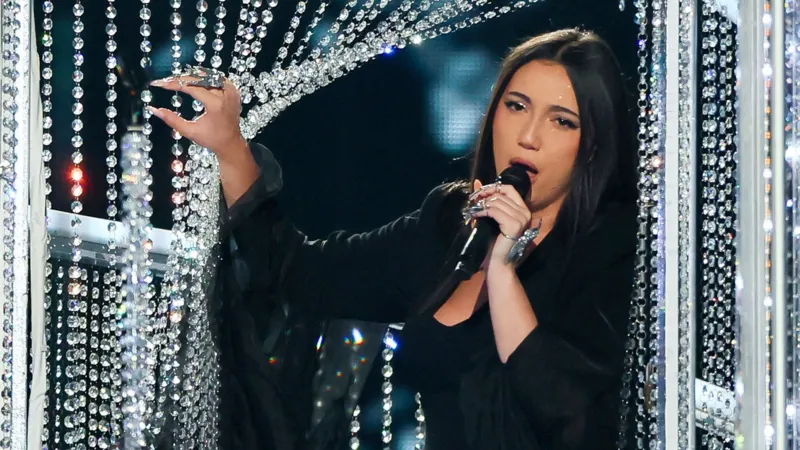
Ireland, Spain, the Netherlands and Slovenia will boycott the 2026 Eurovision Song Contest, after Israel was allowed to compete.
They were among a number of countries who had called for Israel to be excluded over the war in Gaza, as well as accusations of unfair voting practices.
Spanish broadcaster RTVE led calls for a secret ballot on the issue at a meeting in Geneva. It said organisers denied that request – a decision that “increased [our] distrust of the festival’s organisation”.
Ireland’s RTÉ said it felt that its “participation remains unconscionable given the appalling loss of lives in Gaza and the humanitarian crisis there which continues to put the lives of so many civilians at risk.”
Spain is one of Eurovision’s “Big Five” countries along with France, Germany, Italy and the UK.
Their artists are allowed straight into the final, as their broadcasters provide the largest financial contribution to the EBU.
Approximately 50 broadcasters, including the BBC, attended a meeting of the European Broadcasting Union (EBU) on Thursday to discuss the future of the contest, which is watched by more than 150 million people each year.
They were asked to back new rules intended to discourage governments and third parties from organising voting campaigns for their acts, after allegations that Israel unfairly boosted its entrant, Yuval Raphael, this year.
BBC News understands that voting to accept those measures was tied to a clause whereby members agreed not to proceed with a vote on Israel’s participation.
“This vote means that all EBU Members who wish to participate in the Eurovision Song Contest 2026 and agree to comply with the new rules are eligible to take part,” the EBU said.
[BBC]
-
News4 days ago
Lunuwila tragedy not caused by those videoing Bell 212: SLAF
-

 News3 days ago
News3 days agoLevel III landslide early warning continue to be in force in the districts of Kandy, Kegalle, Kurunegala and Matale
-

 Latest News6 days ago
Latest News6 days agoLevel III landslide early warnings issued to the districts of Badulla, Kandy, Kegalle, Kurunegala, Matale and Nuwara-Eliya
-

 Features5 days ago
Features5 days agoDitwah: An unusual cyclone
-

 Latest News6 days ago
Latest News6 days agoUpdated Payment Instructions for Disaster Relief Contributions
-

 News1 day ago
News1 day agoCPC delegation meets JVP for talks on disaster response
-

 News1 day ago
News1 day agoA 6th Year Accolade: The Eternal Opulence of My Fair Lady
-
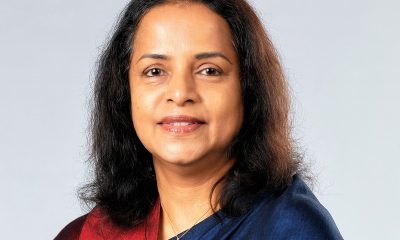
 Business1 day ago
Business1 day agoLOLC Finance Factoring powers business growth


